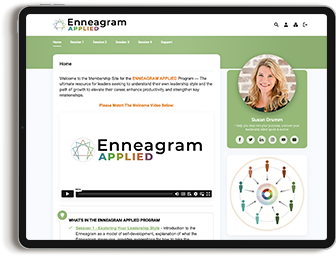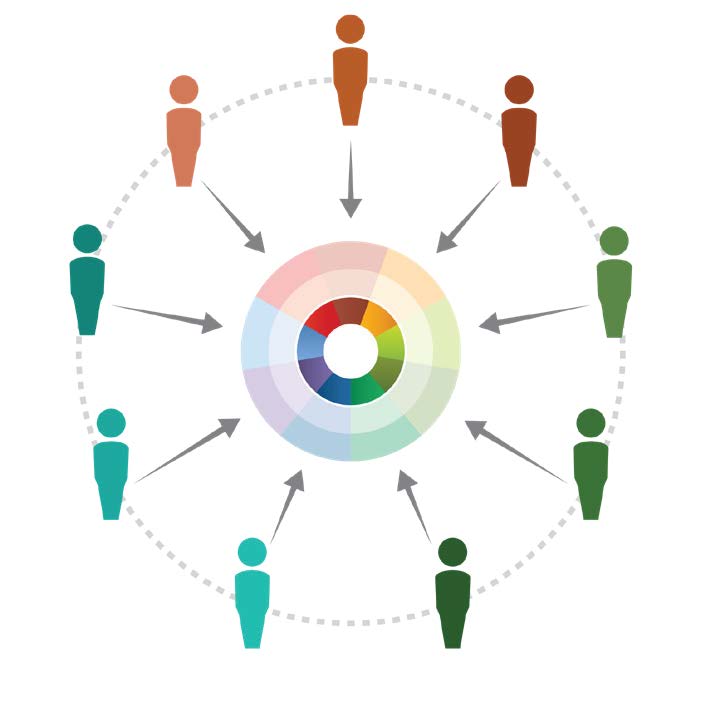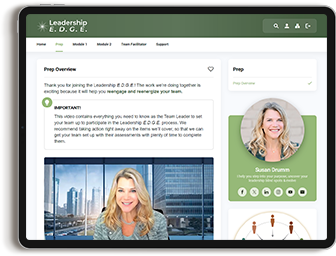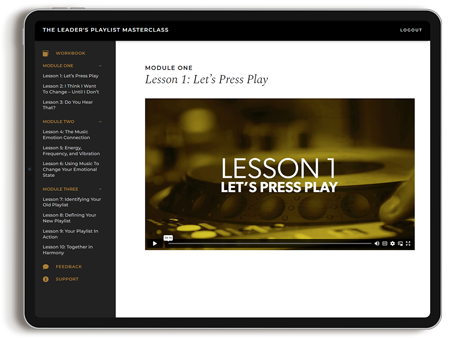How Social Good is Good for Business (feat. Spring Washam)
If you’re a leader who is only focused on profitability and productivity, consider that you might be doing just the bare minimum. The enlightened, modern leader is intentional about using their position to contribute to a more equitable organization.
Social good is good for business.
A recent study reported in Forbes found that 76% of respondents want to work for a company that is focused on social good — making a positive impact on the world. Similar studies show employees are seeking personal value and purpose at work, even at the expense of a generous salary and other monetary benefits. In another study, 90% said they are more willing to purchase products that they deem beneficial to society (Deloitte, 2022).
These business trends reveal that the most impactful leaders are invested in more than corporate success – they care about their people and building a more equitable and sustainable future.
Joining me today on The Enlightened Executive podcast, Spring Washam is a well-known meditation teacher, author, and visionary leader based in Oakland, California. She is the author of A Fierce Heart: Finding Strength, Courage and Wisdom in Any Moment and her newest book, The Spirit of Harriet Tubman Awakening from the Underground. Spring is considered a pioneer in bringing mindfulness-based practices to diverse communities and shares her expertise with us from a leadership perspective.
In today’s episode, Spring examines the timeless teachings of Harriet Tubman and their relevance in today’s complex world. Tubman’s example encourages us to weave a heart-centered approach and mindfulness practices into our leadership for greater personal and social impact.
Leadership Lessons from Harriet Tubman
Spring’s latest book, The Spirit of Harriet Tubman Awakening from the Underground, is more than an exploration of Harriet Tubman’s legacy. While Tubman’s story is rooted in African-American history, her wisdom resonates across all demographics and generations and can guide us in facing the leadership challenges of the modern world. Tubman’s relentless determination to fight for justice reveals the powerful impact of heart-centered leadership. Just as Tubman embodied compassion and stood up for what she believed in, we too have a responsibility to leverage our position of leadership for social good — to work towards a more heart-centered and just world.
Navigating Turbulence with Heart-Centered Leadership
Much like Harriet Tubman’s era, division and conflict are increasingly prevalent in today’s society. This tension inevitably makes its way into corporate settings where leaders are expected to respond to social justice issues and manage complex workplace dynamics. Practicing heart-centered leadership can empower you to make a positive change in the midst of these challenges. Heart-centered leadership prioritizes empathy and compassion. When team members follow your example, honoring the emotional realities of their colleagues, you as a leader are more successful in establishing unity and implementing positive change.
Consider following Harriet Tubman’s example and guide others towards compassion and unity with these approaches:
- Adopt heart-centered leadership in the face of rising tensions. Over time, developing a deeper personal connection fosters a sense of belonging, diffusing conflict and improving emotional well-being. Use these strategies to embody a heart-centered leadership posture:
- Schedule time to specifically connect with your team on a deeper level. Block off time each month to check in on each member of your team from a strictly personal perspective. Ask about their family, hobbies, and big life events.
- Follow up on personal events and updates. Make notes about what you talked about and set calendar reminders to follow up on important personal events. This intentionality will foster trust and compassion, and improve your relationship with your team members.
- Embody emotional intelligence by acting with compassion and empathy in leadership roles. Washam suggests that leaders should not only care for their teams but also teach emotional intelligence by modeling behaviors such as:
- Respond to personal crises with flexibility. When a team member approaches you with a challenge in their personal life, consider what they need as a fellow human before you think about the impact their request has on business.
- Seek to understand diverse perspectives. Ask people from different backgrounds and orientations for their thoughts on various issues and challenges. Listen to understand before you attempt to respond or critique.
Inner Transformation Leading to Ethical Leadership
Spring Washam’s experience working with diverse individuals in meditation retreats highlights the profound impact of mindfulness on becoming a heart-centered leader.
Several CEOs and luminaries such as the CEO of PayPal and Dan Harris, author of the book “10% Happier,” have had the opportunity to grow from these powerful meditation retreats. Slowing down allowed these leaders to attune to what they were doing and why, growing their capacity to be more conscious leaders. As a result, many of these individuals have started organizations that were more humane, focused on wellness, or intentional about making the world better.
Discover your own inner strength and become a more powerful catalyst for positive change in your organizations and communities by:
- Finding time to Pause. Like any lifestyle change, practicing mindfulness requires purposeful planning. Create space in your life to slow down, reflect, and connect with your inner world. Pay attention to what comes up for you in these moments of quiet. Set a goal, make a plan, and schedule time to reflect on how this new practice is going.
- Being specific. As with any goal, the more specific the better. Don’t make a plan to “be mindful,” but rather focus on integrating mindfulness practices into specific daily routines. Practice deep breathing on your drive home, notice the sensations in your body as you walk, meditate for a few minutes each evening before bed. Add new practices as you get comfortable with your current ones.
- Being curious. Notice if any particular social issues surface when you slow down and create internal space for mindfulness. Get curious about where your thoughts take you. This quarter, name one social justice issue you care about and consider how this issue plays out in your sphere of influence. Come up with three practical steps you can take in the next 3 months to influence change. Make this a quarterly rhythm.
A practice of mindfulness infuses intentionality, consideration, and reflection into our leadership. If you are eager to navigate workplace challenges with grace, build stronger teams, and make a lasting impact, consider how you are incorporating meditation and mindfulness into your daily life.
By drawing inspiration from Harriet Tubman’s legacy and embracing heart-centered leadership, we can use our influence to build a more equitable and sustainable future.
Spring also shares…
- The importance of embodiment in leadership
- The impact courage has on our influence
- The connection between resilience and leadership
If you liked this episode, you may also want to hear:




